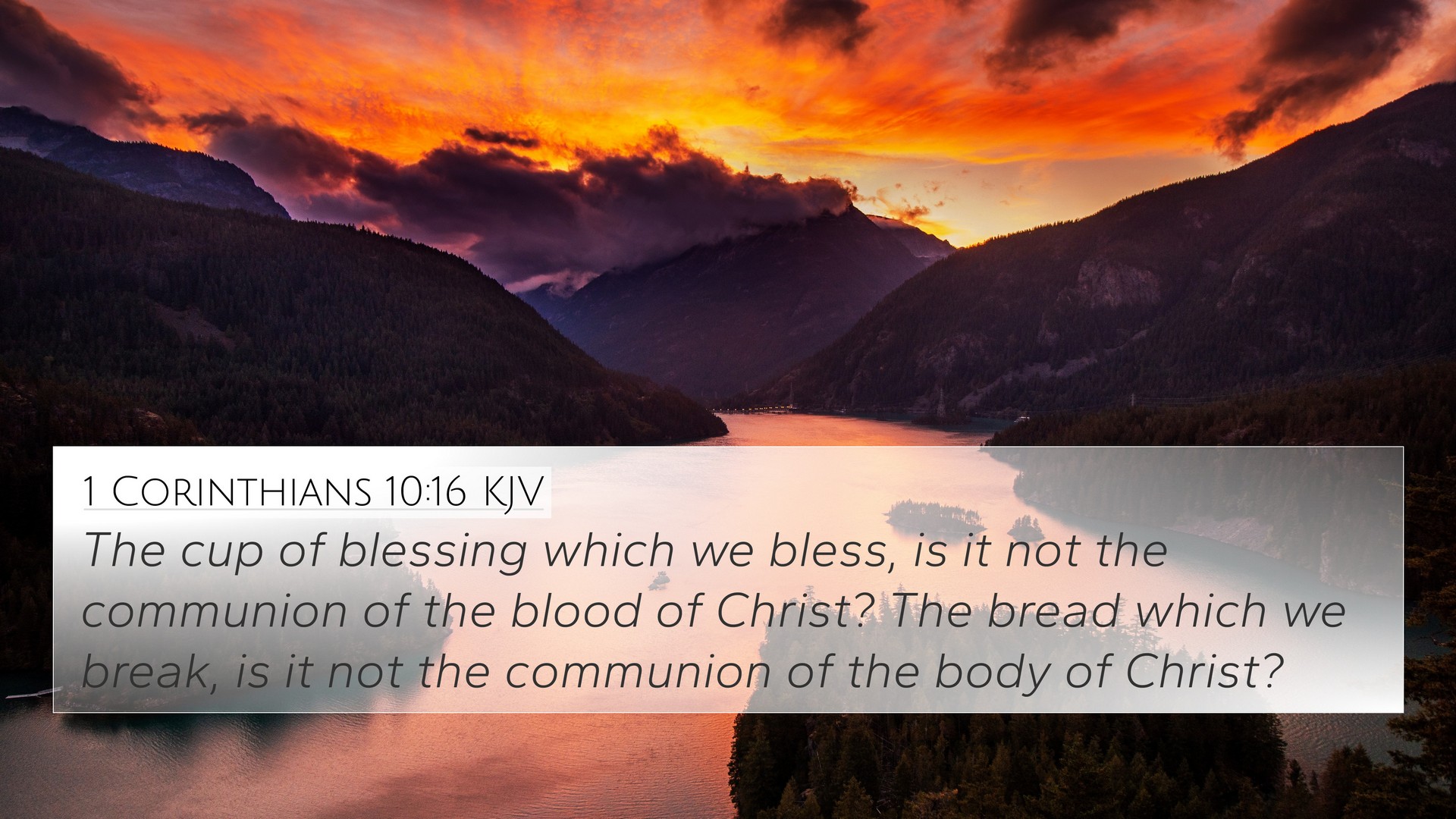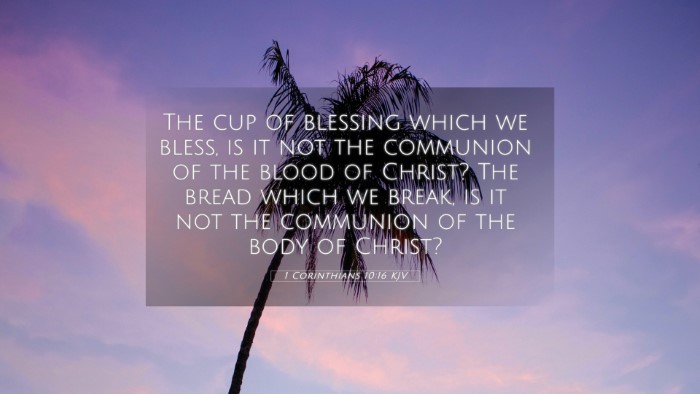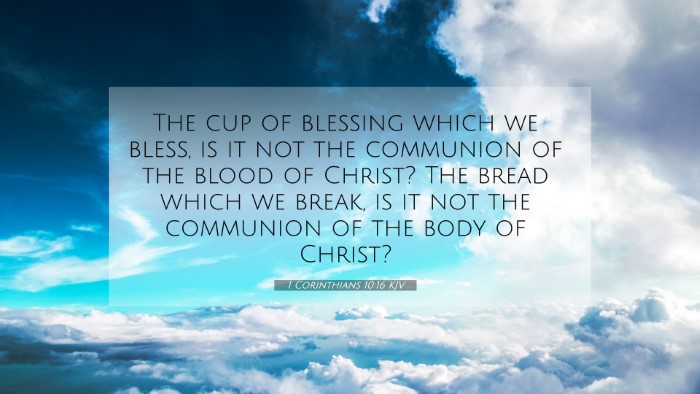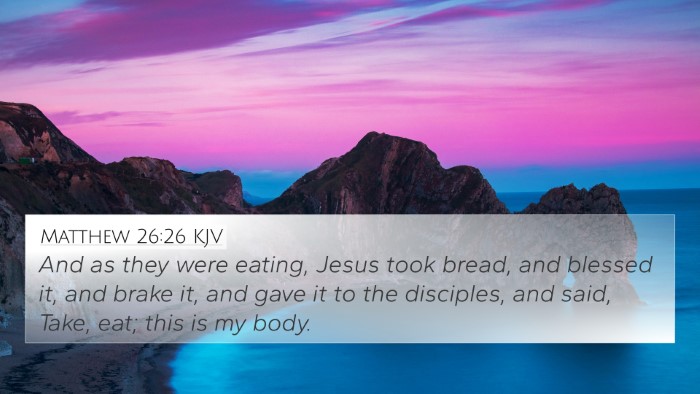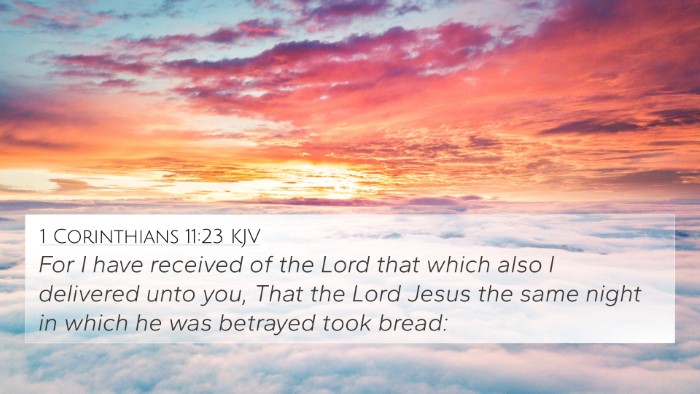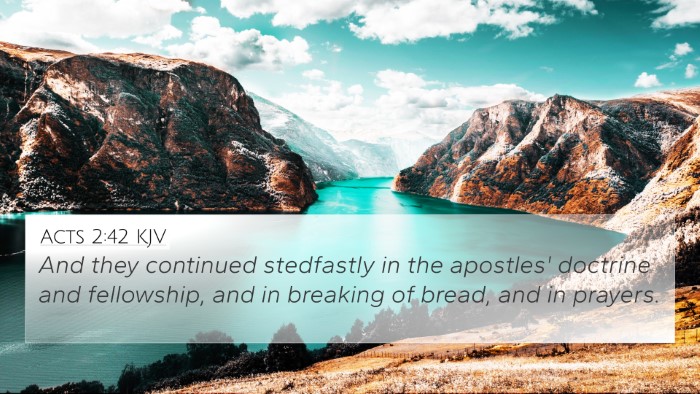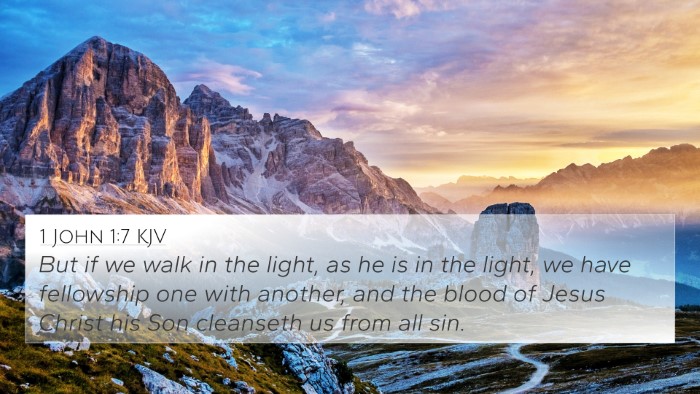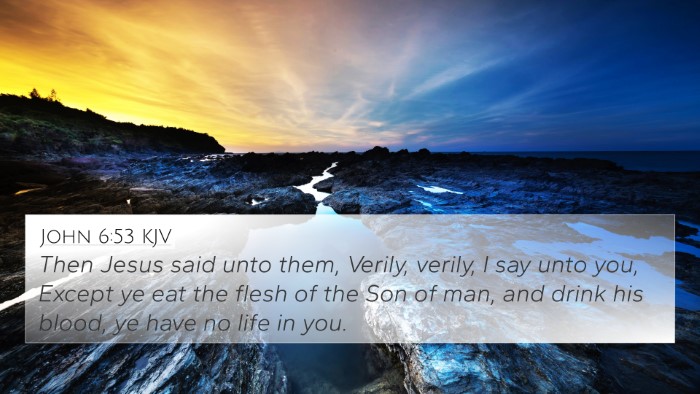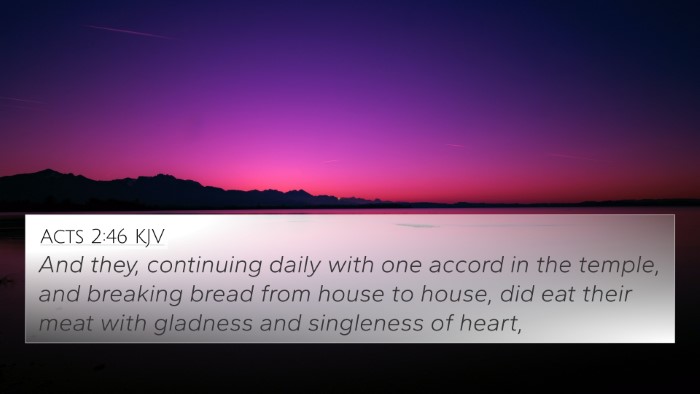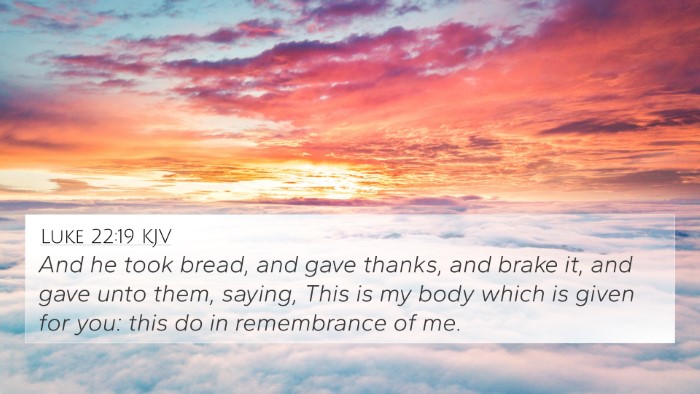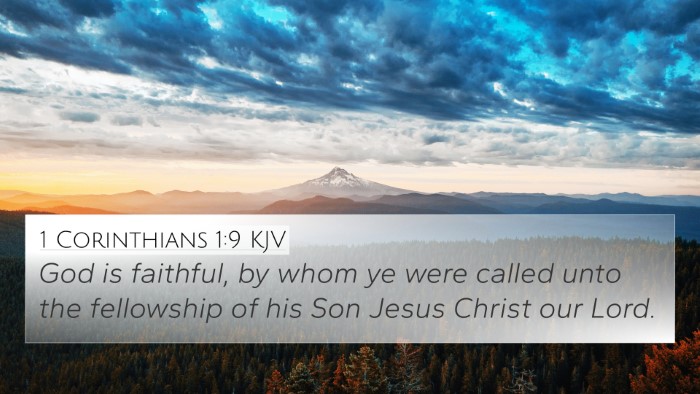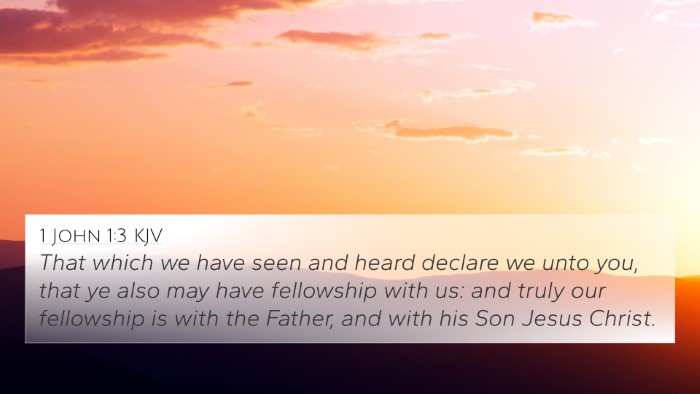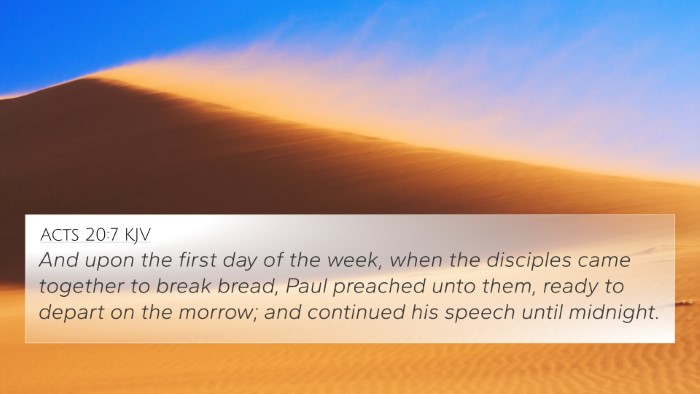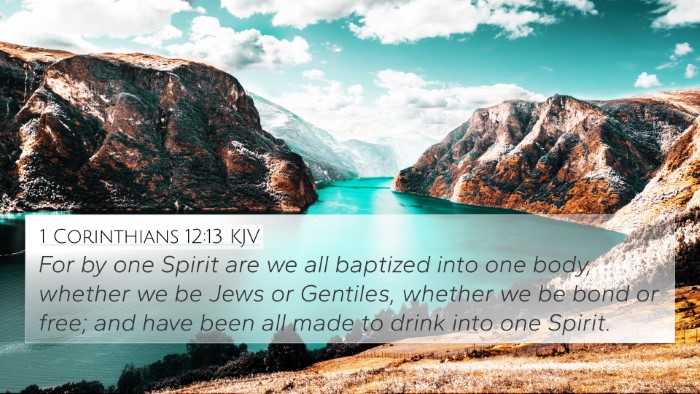Understanding 1 Corinthians 10:16
Verse: “The cup of blessing which we bless, is it not the communion of the blood of Christ? The bread which we break, is it not the communion of the body of Christ?” (1 Corinthians 10:16)
Summary of Meaning
This verse emphasizes the significance of the communion or the Lord's Supper as a profound spiritual experience among believers. According to the Apostle Paul, partaking in the cup and bread is more than just a ritual; it symbolizes a deep connection with Christ and one another.
Insights from Public Domain Commentaries
-
Matthew Henry:
Henry highlights that this passage underscores the unity of believers through their participation in the communion, which is an acknowledgment of the sacrifice of Christ. Each element of the communion service serves to remind the participant of Christ's suffering and the subsequent bond they share in faith.
-
Albert Barnes:
Barnes elaborates on the phrase "cup of blessing." He interprets it as a call to recognize the blessings that come from God—the grace and fellowship extended through Christ's blood. The act of communion represents the sharing of these spiritual benefits among the congregation.
-
Adam Clarke:
Clarke discusses the implications of the term "communion," explaining that it reflects the participation in the life and death of Christ, where believers are called to remember and declare the significance of Christ's sacrifice in a communal setting.
Bible Cross References
1 Corinthians 10:16 can be cross-referenced with several other scripture passages to enhance understanding of its context and meaning. Key cross-references include:
- Matthew 26:26-28: The institution of the Lord's Supper, where Jesus explains the significance of the bread and cup.
- Luke 22:19-20: Similar to Matthew, this passage recounts Jesus breaking bread and sharing the cup during the Last Supper.
- John 6:53-57: Jesus speaks about the necessity of consuming His flesh and blood for eternal life, echoing the themes of communion.
- Acts 2:42: The early church devoted themselves to the breaking of bread and fellowship, indicating the practice's importance in Christian life.
- Romans 12:5: Highlights the unity of believers as one body in Christ—a key theme in understanding communal practices such as the Lord’s Supper.
- 1 Peter 2:24: Speaks of Christ bearing our sins, strengthening the connection between His sacrifice and the communion elements.
- Hebrews 10:19-22: Discusses the access to God through the blood of Jesus, linking to the communion's significance as a means to approach God.
Connections Between Bible Verses
The thematic connections between these verses reveal a comprehensive understanding of the Lord's Supper. The shared elements of bread and wine are not merely symbols but a representation of the deeper spiritual truths of redemption, fellowship, and unity in Christ.
Inter-Biblical Dialogue
1 Corinthians 10:16 provides an opportunity for inter-Biblical dialogue, drawing connections between the Old Testament sacrificial system and the New Testament understanding of Christ's ultimate sacrifice. The communion is deeply rooted in Jewish traditions, which add layers of meaning to the act of breaking bread and sharing the cup.
Tools for Bible Cross-Referencing
To enhance understanding and study of 1 Corinthians 10:16 and related verses, various tools can be utilized:
- Bible Concordance - aids in finding verses based on keywords.
- Bible Cross-Reference Guide - offers structured suggestions for related scriptures.
- Cross-Reference Bible Study Methods - different approaches for engaging with scripture to uncover connections.
- Bible Reference Resources - compilations of thematic and verse-level connections within the Bible.
Conclusion
The verse 1 Corinthians 10:16 serves as a profound reminder of the unity and connection believers share through Christ’s sacrifice. The insights from Matthew Henry, Albert Barnes, and Adam Clarke, along with the numerous cross-references, deepen our understanding of this sacramental act. By engaging with thematic connections and using cross-referencing tools, one can gain a richer comprehension of its implications in both personal faith and communal worship.
